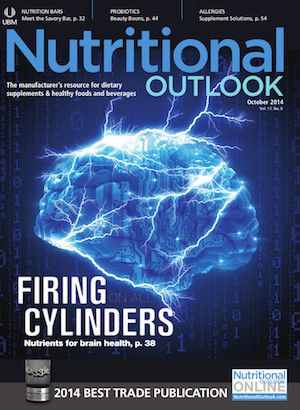Weight-Loss Cases Spark Highest FTC Settlement Costs
But questionable antiaging and diabetes claims are also on the rise.

Weight-loss supplement cases lead the way in settlement costs with the FTC, according to the Council for Responsible Nutrition (CRN; Washington, DC). The association analyzed these results using its new, members-only online tool that compiles data on all FTC enforcement actions against dietary supplements and functional foods since 2003.
According to CRN data, weight-loss cases have generated $438.4 million in FTC settlement costs-outranking the next-costliest category, immunity claims, which amassed $47.2 million in settlement costs. “Impermissible cancer claims” came in a distant third, with $5 million in settlement costs.
The goal of CRN’s new online tool is to provide a comprehensive database from which other supplement marketers can learn what not to say or do when making advertising claims. “We developed this tool as a service to our member companies so they have a one-stop location to review the kinds of claims that have led to FTC investigations, consent decrees, and punitive financial settlements,” said CRN’s president and CEO Steve Mister, in a press release.
In addition to weight-loss, immunity, and cancer claims, CRN reported that other risky claims are also trending. “We’re now also starting to see enforcement trends in antiaging claims and claims addressing diabetes,” Mister said. “The data illustrates how active FTC has been in recent years and should be a warning to all companies that the agency will move aggressively to remove claims that it believes mislead consumers.”
CRN offers other tools to encourage self-policing of best advertising and manufacturing practices. In 2012, CRN created a free online database of past National Advertising Division (NAD) cases, again so that companies can learn from other companies making questionable claims. For many years, the association has helped to fund the NAD program for dietary supplements. A part of the Council of Better Business Bureaus, the NAD investigates questionable advertising claims and encourages companies to ensure their claims are truthful and not misleading.
Jennifer Grebow
Editor-in-Chief
Nutritional Outlook magazine jennifer.grebow@ubm.com
Photo ©iStockphoto.com/Neustockimages

Magnesium L-threonate, Magtein, earns novel food authorization in the European Union
December 19th 2024According to the announcement, the authorization is also exclusive to AIDP and its partner company and licensee, ThreoTech, meaning that they are the only parties that can market magnesium L-threonate in the EU for a period of five years.
Senate Committee has released the text of 2024 Farm Bill, with changes to hemp regulations
November 19th 2024The U.S. Senate Committee on Agriculture, Nutrition, & Forestry has introduced the Rural Prosperity and Food Security Act, which will serve as the Senate’s draft for the 2024 Farm Bill.